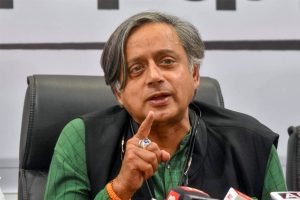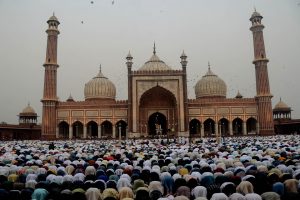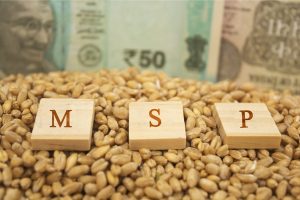Commending the role of the annual fair organised by the flower sellers of Delhi called Phool Waalon Ki Sair, which literally means a procession of the florists, in achieving social harmony bringing, Delhi Chief Minister Atishi said here on Sunday that the festival has upheld the tradition of Delhi’s centuries-old Ganga-Jamuni Tehzeeb (unity in diversity).
Atishi attended the closing ceremony of ‘Phool Waalon Ki Sair’, a symbol of India’s culture and unity as the chief guest. It took place on Saturday night with all its grandeur featuring performances by artists drawn from different parts of India.
Advertisement
Speaking on the occasion, the chief minister Atishi said, “‘Phool Waalon Ki Sair’ is not a mere festival; it has upheld the tradition of Delhi’s centuries-old Ganga-Jamuni Tehzeeb. In today’s times, festivals like Phoolwalon Ki Sair convey the message of humanity and bring people together.”
She further said, “Delhi is a city of people with golden hearts where we don’t build walls but share the message of humanity through festivals like ‘Phool Waalon Ki Sair’. This festival, which connects people and moves them away from the path of hatred, is the true identity of Delhi’s unity and diversity.”
Recalling her childhood experiences, Atishi said, “I grew up in Delhi. My parents were professors at Delhi University, and we lived on the campus. There, festivals were celebrated collectively, and for a long time, I didn’t even realise which festival belonged to which religion. Festivals of Hindus, Muslims, Sikhs, Christians, Punjabis, Gujaratis, Marathis, Malayalis, and Tamils were all celebrated together.”
Highlighting the unique culture of Delhi, she said, “Delhi’s greatest charm is that its people are warm-hearted and do not create divisions. ‘Phool Waalon Ki Sair’ is also a festival for the golden hearts, where people of every religion, caste, and language in Delhi come together, enjoy the celebration, and listen to Qawwali throughout the night.”
Atishi emphasised that such festivals should remain part of our tradition, and the love shared by people should continue. “It is unfortunate that in today’s times, attempts are made to divide people on the basis of language, religion, caste, and community. But ultimately, we are all human beings, and it’s essential to recognize ourselves as such.”
She urged politicians to stay away from dividing people and focus on their real duties, such as providing good schools, hospitals, better facilities, electricity, and water, securing a bright future for the common man, and offering better job opportunities for the youth.
“If all leaders try to do this,” she added, “there would be nothing stopping our country from becoming the world’s number one nation.”
Atishi also reflected on the efforts of her government over the past decade.
“For the last 10 years, we have worked hard to serve the people of Delhi. Whether it’s providing electricity, and water to every street, quality education for the children of even the poorest families, or excellent healthcare, we have tried our best to serve the citizens. We’ve also facilitated pilgrimage for the elderly and offered free bus travel for women to reach schools, colleges, and workplaces. We have received love and blessings from the people of Delhi so far, and we hope they will continue to support us in the future,” she said.
In a post on X, Atishi said, “‘Phoolwalon Ki Sair’ has preserved the centuries-old Ganga-Jamuni Tehzeeb of Delhi. I was honored to attend this beautiful and unique festival that promotes humanity, held at Jahaz Mahal in Mehrauli. It is a true representation of Delhi’s unity and diversity, connecting people beyond the path of hatred.”
















